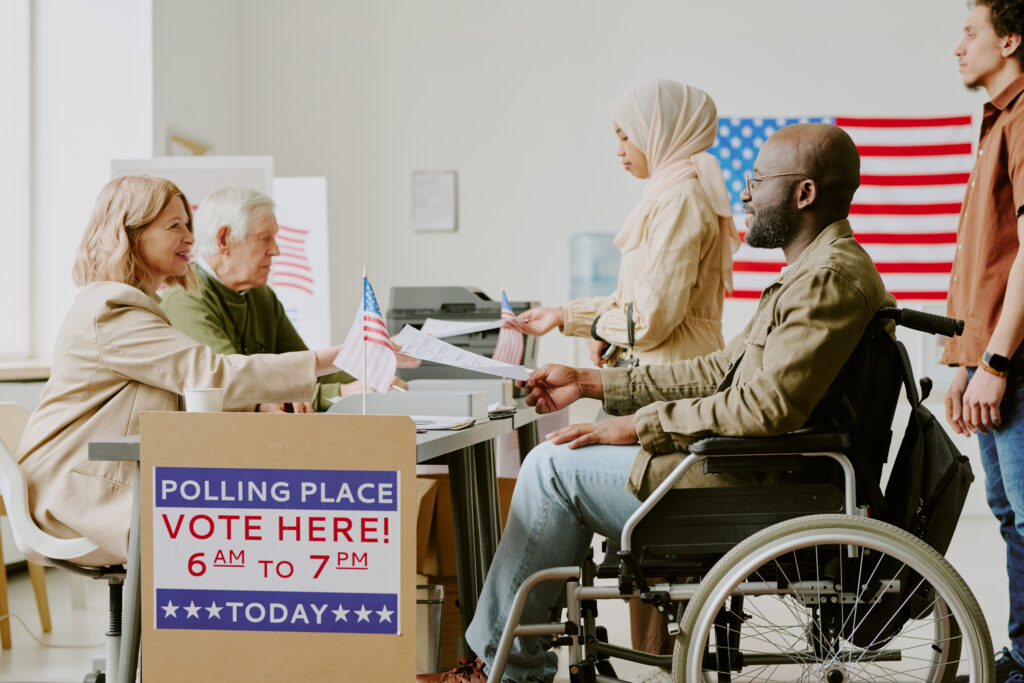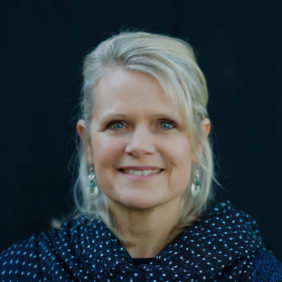For many leaders today, presidential election season isn’t a cause for much positive excitement or anticipation, but rather anxiety. Our anxiety may stem less from our perceptions of the candidates themselves and more from how we should respond when our team members talk politics at work.
You might be tempted to just ban these discussions, and that’s understandable. After all, that strategy might work well at a holiday dinner when you find yourself sharing space with a relative with whom you disagree on a number of issues. You only have to do it once a year and for a couple of hours.
One of the problems with trying to apply this same strategy to the workplace–avoiding discussion of issues with people we interact with regularly–is that we have to interact with them more frequently over multiple communication channels so it’s a lot harder to sustain.
As humans, we tend to avoid things that make us feel uncertain or uncomfortable. In the United States, the issue of who you’ve cast your vote for is one of the last areas of civil life where the right to personal privacy is still closely guarded. This is especially true for older voters who came of age before social media normalized public sharing of personal information over privacy en masse.
In last month’s blog, “Should Leaders Help Get Out The Vote?” I wrote, “When you encourage and enable people to vote you are making an investment in their growth and development.” And, you may wonder,
“How should I answer people when they ask me about which candidates or ballot initiatives I am voting for?”
Rather than avoiding the question or saying, “None of your business!” try taking these four steps instead:
- Start by expressing appreciation that they are asking for your opinion or guidance. A simple, “Thank you for asking my opinion” usually works well.
- Are you comfortable sharing one, two or three of your voting decisions with this person or group? I recommend practicing selective self-disclosure over sharing everything or sharing nothing. However, If you choose not to disclose any of your voting decisions, simply state that you prefer to keep that information private, then skip to number four below.
- Once you’ve decided what you will/won’t share keep your explanations very brief. It’s not necessary or advisable for you to go into great detail. Remember that your goal here is to encourage people at work to follow your example of participation in the voting process, not to vote the same way you did.
- Suggest one or two resources you find helpful to guiding your voting decisions, For example, our local newspaper’s editorial board publishes a thorough analysis of each local candidate’s past voting record and policy proposals during election season. I frequently recommend that report to others as a starting point to inform their own decisions for local elections.
The Four Containers is a model I developed to help future-ready leaders analyze information so they can make better decisions around complex issues. The Four Containers are:
- Bodily autonomy and personal agency
- Business, legal and financial exposure to risk
- Institutional structures and systems
- People, equity and social justice
None of these containers is objectively more impactful than any other. How we assess “impactful” depends on our personal beliefs, values, identities, roles and life experience.

By AnnaStills
It’s important for our workplaces to be spaces where people can strongly disagree around their decisions at the ballot box, yet still be able to trust and respect one another. Leaders who consistently reinforce that message through their words and actions serve their organizations and communities well.
I’m looking forward to casting my ballot this year, and thank you for casting yours. To learn more about Applying The Four Containers click here or email us at hello@wearekadabra.com.


 Heather Leavitt-Martinez (she/her/hers) – Senior Product Manager
Heather Leavitt-Martinez (she/her/hers) – Senior Product Manager Wendy Ryan (she/her/hers) – CEO
Wendy Ryan (she/her/hers) – CEO Shawn Bunger (she/her/hers) – Senior Consultant
Shawn Bunger (she/her/hers) – Senior Consultant Crystal Whiteaker (she/her/hers) – Senior Consultant
Crystal Whiteaker (she/her/hers) – Senior Consultant Gail Finger (she/her/hers) – Senior Consultant
Gail Finger (she/her/hers) – Senior Consultant Monica Silkwood (she/her/hers) – Director of Operations and Experience
Monica Silkwood (she/her/hers) – Director of Operations and Experience Johanna Lyman (she/her or they/them) Senior Consultant
Johanna Lyman (she/her or they/them) Senior Consultant Sherri Horan (she/her/hers) – Senior Consultant
Sherri Horan (she/her/hers) – Senior Consultant
